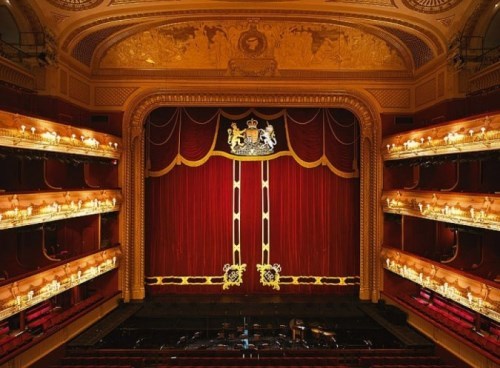Covent Garden
Covent Garden is the biggest market-place in Britain. If you come to Covent Garden in the afternoon, you’ll only see enormous buildings and a few tourists. But if you come here early in the morning, you’ll see hundreds of people buying and selling vegetables, fruit and flowers. Cars, vans, lorries are everywhere. There are voices everywhere. Some people are carrying heavy boxes of fruit and vegetables. They are crying: «Mind your backs, please». Before the businessmen arrive at their offices, all the cars and vans will have arrived at the shops all over London. They’ll have delivered everything for customers. By the afternoon all the farmers, shopkeepers, porters and drivers will have gone home. The market-place will have been cleaned by the dustmen. It’ll be ready to meet tourists.
Covent Garden has been the most important market-place in London for 300 years. It was officially established by King Charles II in 1670. It was called Covent Garden because it was the garden of the monks of Westminster Abbey. At that time it was very small, and used only by Londoners.
Nowadays it serves the whole of Britain. Those who work there say: «If there is any kind of fruit or vegetable which we haven’t got — nobody has got it».
Today, Covent Garden has been extensively restored and is now a lively shopping area, with wine bars, restaurants and theatre and an open Pizza and covered Central Market.
EXERCISES
I. Answer the questions.
1. What is Covent Garden?
2. When was Covent Garden established?
3. What can you buy at Covent Garden?
4. Why was this place originally called «convent garden»?
II. Fill in the gaps.
1. Covent Garden is the biggest … in Britain.
2. In the afternoon you’ll see . . . there.
3. By the midday everything will be delivered for ….
4. The market-place will have been cleaned by . . . .
5. Covent Garden was established by … .
6. Covent Garden was … of … of Westminster Abbey.
7. Nowadays it . . . the whole of Britain.
Answers
II. 1. market-place; 2. enormous buildings and a few tourists; 3. customers; 4. the dustmen; 5. King Charles II; 6. the garden; the monks; 7. serves.
(Великобритания: Тексты для устных ответов и письменных работ на английском языке. Авт.-сост. И. Ю. Баканова)
